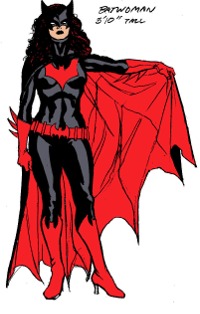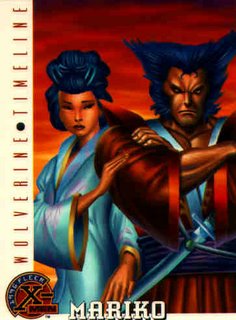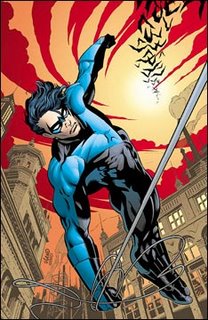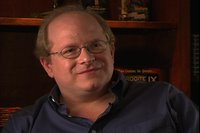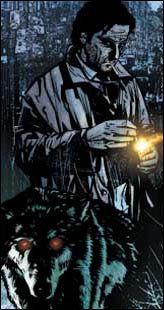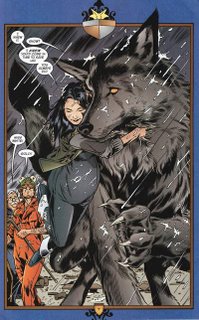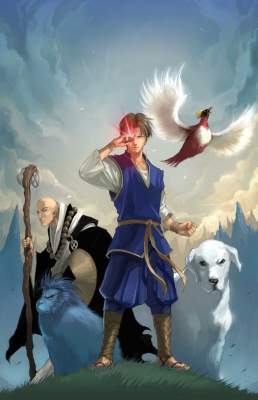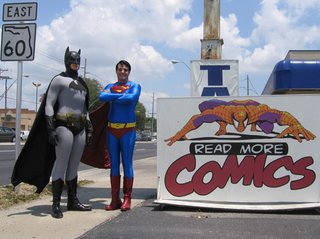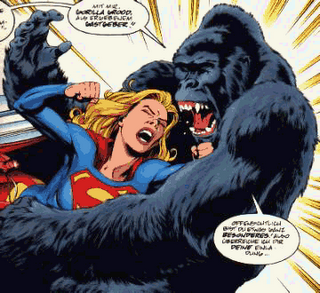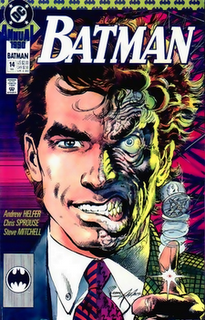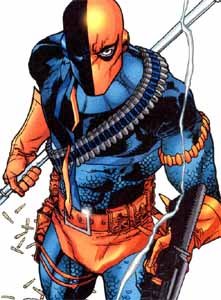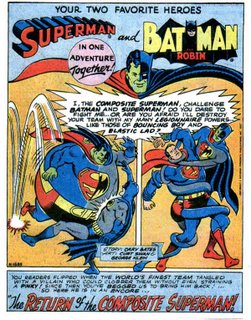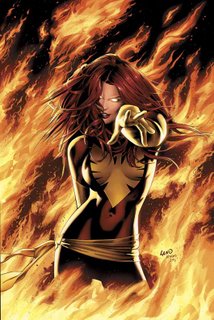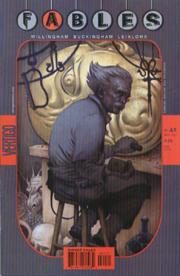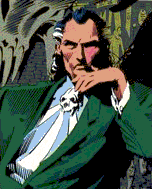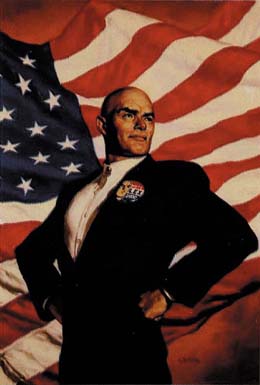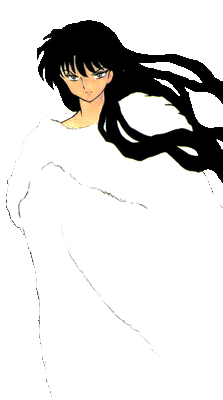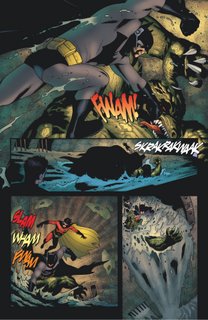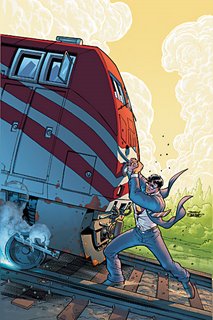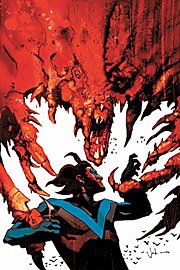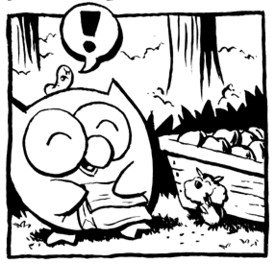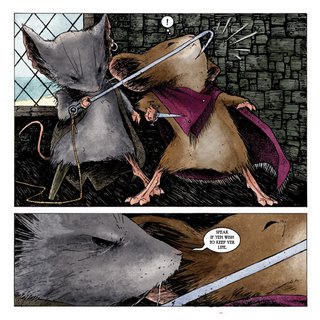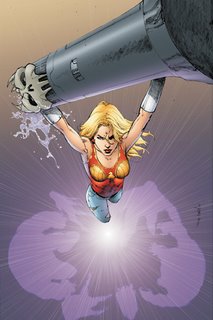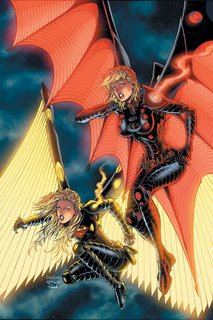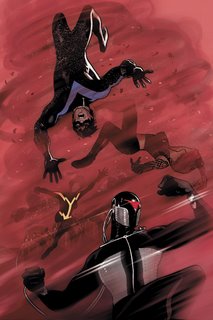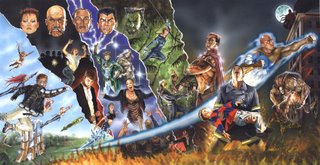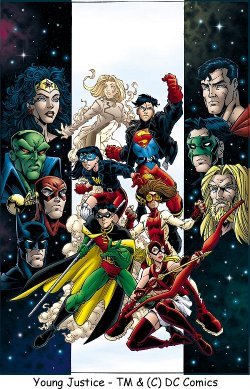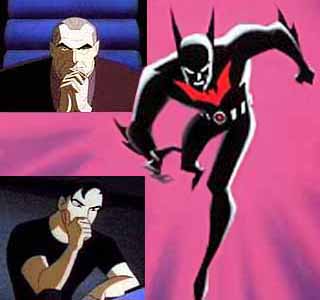"A glorious place, a glorious age, I tell you! A very Neon Renaissance - And the myths that actually touched you at that time - not Hercules, Orpheus, Ulysses and Aeneas - but Superman, Captain Marvel, Batman," - Tom Wolfe, The Electric Koolaid Acid Test
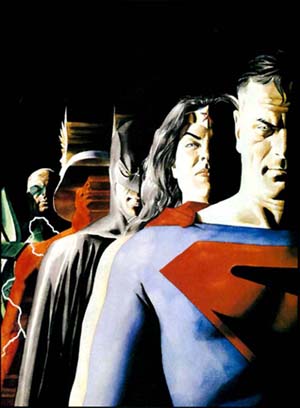
First of all Jeff, in direct response to the interview you posted, I would like to say that I don't think Oeming is very well read on the subject of mythology. Anyone who has done any research or given any thought to the matter of mythology has read Joseph Campbell, and it seemed as if Wagner was the one who knew his work.
Are comic books modern mythology - in a word, yes. At the very heart of the heroes that cut to the quick of our souls there is the resonance of stories that touch the essence of the human experience - stories that tell the human story. This doesn't cover every comic book, obviously, but how many people felt actual sorrow when Barry Allen died - I know I did. If I can cry for the death of a fictional character, that makes them at least a little bit real to me, especially in relation to the part of me that believes in humanity, and in the characters that represent that humantiy.
 First, what is mythology? Joeseph Campbell has said that "myths are the clues to the spiritual potentialities of the human life", and Bill Moyers has translated that to mean "what we're capable of knowing and experiencing within". In the book of Alex Ross' artwork, Mythology, Campell is also quoted, from his famous book The Hero With A Thousand Faces (which inspired George Lucas' creation of Star Wars) as defining myth as "the secret opening through which the inexaustible energies of the cosmos poor into human cultural manifestation... the very dreams that blister sleep, boil up from the basic, magic ring of myth." One dictionary definition (Princeton.net) defines mythology as "myths collectively; the body of stories associated with a culture or institution or person". So looking at this information, we can link comics to mythology from a myriad of different angles. Superheroes as a manifestation of culture as well as representatives of culture, as guides to our inner stories and beliefs, and dreams of humanity's potential.
First, what is mythology? Joeseph Campbell has said that "myths are the clues to the spiritual potentialities of the human life", and Bill Moyers has translated that to mean "what we're capable of knowing and experiencing within". In the book of Alex Ross' artwork, Mythology, Campell is also quoted, from his famous book The Hero With A Thousand Faces (which inspired George Lucas' creation of Star Wars) as defining myth as "the secret opening through which the inexaustible energies of the cosmos poor into human cultural manifestation... the very dreams that blister sleep, boil up from the basic, magic ring of myth." One dictionary definition (Princeton.net) defines mythology as "myths collectively; the body of stories associated with a culture or institution or person". So looking at this information, we can link comics to mythology from a myriad of different angles. Superheroes as a manifestation of culture as well as representatives of culture, as guides to our inner stories and beliefs, and dreams of humanity's potential.
Mythology does require belief, but it is more about belief in ourselves, in our spiritual potential, then it is about religion. It's true that some comics are the children of capitalism, but they can be, and many times are, so much more than that.
Let's use Superman as an example. In my junior year of high school I was in an AP English class in which we were meant to work on a research project. I was attempting to prove that comic books were an important part of American culture. During my presentation I wore a Superman t-shirt and asked my class (which consisted of many people who had never read comic books, I know because I asked them) who among them recognized the man on my shirt. EVERYONE raised their hand. I then asked them what he meant to them and had the gratification of hearing most every person call out words like justice, hero, truth, courage, liberty. Even my 11th grade English class recognized a superhero as a cultural icon, a manifestation of human potential. Another good example of Superman as myth can be traced back the The Death of Superman. On one hand, it was a marketing event, the death of a great hero. On the other hand, since when did a fictional character's death make it onto the daily news. I remember feeling as if Superman had really lived in order for it to be so painful when I heard a news anchor say that Superman had died. My sister and I weren't the only ones in school wearing black armbands that week. If belief is a factor in defining mythology then I can introduce many people to whom these characters are something to believe in. 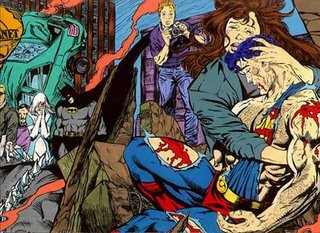
Myths are supposed to be the stories that teach us about the human experience, that help us to understand our own stories and our spiritual and mortal place in our lives. They help us to understand not only what it means to live but what it means to die. Myths help us to discover what "we need to signify, to touch the eternal, to understand mysteriousness, to find out who we are"(Bill Moyers, The  Power of Myth). For me superheroes have done all these things, and I know I'm not alone. There is a sense of awe and beauty when I read a book like Adventures of Superman 648, where I get to see the heart of the myth that is Superman. When Lois speaks for humanity when she says "That's the gift of Superman. Even when today seems so uncertain... he makes us believe... in tomorrow."
Power of Myth). For me superheroes have done all these things, and I know I'm not alone. There is a sense of awe and beauty when I read a book like Adventures of Superman 648, where I get to see the heart of the myth that is Superman. When Lois speaks for humanity when she says "That's the gift of Superman. Even when today seems so uncertain... he makes us believe... in tomorrow."
Isn't that the power of a mythical hero after all? To make us believe in tomorrow. To show us how to make it there, not by doing it for us, but by leading by example and inspiring us to greater things, to fight for us when we've forgotten how to fight for ourselves. Even Superman himself recognizes Batman as a hero of mythic potential. "Then, I look at Batmna and all the tragedy in his life and how, somehow, he presses on. And if he can do his job, I've got nothing to complain about."(SB Public Enemies)
There are so many things I have learned about what it is to be a human being through comic books and superheroes. If that's not mythology, I don't know what is. Every time I've met someone who grew up believing in heroes like Superman and Batman I am amazed to not only find a kindred spirit but a good person. Whenever I lose faith in humanity I turn to comic books. Batman, Superman, Wonder Woman, Nightwing, Flash, and so many more were my other parents. When I look around and see so many kids with Superman shirts or Wonder Woman lunch boxes I know that these stories resonate on a deeper level in our culture. I understand that they are myth.
Moyers: Why are there so many stories of the hero in mythology?
Campbell: Because that's what's worth writing about. (The Power of Myth)


